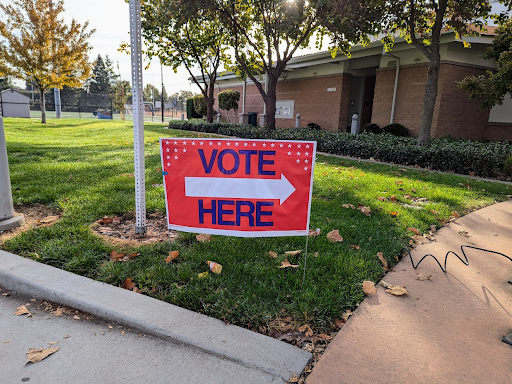Election day takes place on Nov. 5, 2024, where issues of local, state, and national importance will be voted on. While most high schoolers are ineligible to vote, it is also important to recognize that the outcomes of this election will have a significant impact on the future.
State Measures
Proposition 2 would authorize $10 billion in general obligation bonds for repair, upgrade, and construction of facilities at K-12 public schools, charter schools, community colleges, and career technical education programs. Those in support of Prop. 2, including the California Teachers Association and both the Democratic and Republican parties, argue that California’s schools and community colleges need repairs and upgrades for safety, as well as attracting quality teachers. The opponents of this proposition argue against its cost for taxpayers.
Proposition 3 would amend the California Constitution to formally recognize same-sex marriage. It would remove language in the California Constitution stating that marriage is only between a man and a woman. Prop. 3 would not change who would be allowed to marry in California as same-sex marriage has already been legal since 2013.
Proposition 4 would authorize $10 in general obligation bonds for water, wildfire prevention, and activities aimed at conserving natural resources and responding to climate change. This would require annual audits and increase state costs by about $400 million annually for 40 years to repay the bond.
Proposition 5 would change the threshold for approval of local infrastructure and housing bonds for low-and middle-income Californians through a 55% vote. Currently, the voting requirement needed to approve local general obligation bonds is two-thirds. Prop. 5 would lower this to 55%. This would allow for more affordable housing, but also make approval for housing and infrastructure projects significantly easier.
Proposition 6 would amend the California Constitution to effectively abolish involuntary servitude as punishment. Supporters of Prop. 6 argue that it upholds human rights and prioritizes rehabilitation, lowering recidivism and improving public safety. No argument against Prop. 6 was submitted.
Proposition 32 would raise California’s minimum wage to $18 ultimately by 2026. For employers with 26 or more employees, this would immediately raise the wage to $17 and then $18 by 2025. For employers with 25 or fewer employees, this would raise the wage to $17 by 2025 and $18 by 2026. Supporters of Prop. 32 argue that it would help essential workers and single mothers afford the state’s cost of living. Opponents argue that it would increase the cost of living, eliminate jobs, and overcomplicate state minimum wage laws.
Proposition 33 would expand local governments’ authority to enact rent control. It would allow cities and counties to create stronger rent control policies. Supporters argue that by lowering the rent, Prop. 33 would make housing more affordable and keep people in their homes. Opponents argue that it would freeze the construction of new housing.
Proposition 34 would restrict spending of prescription drug revenues by certain health care providers by requiring them to spend 98% of revenues from the federal discount prescription drug program on direct patient care. Supporters argue that it would close loopholes and ensure that public healthcare dollars go to patients who need it. Opponents claim that it is a “Revenge Initiative” aimed at silencing the AIDS Healthcare Foundation.
Proposition 35 would provide permanent funding for Medi-Cal health care services by making the existing tax on managed health care insurance plans permanent. A “NO” vote would let the tax expire in 2027. Supporters of Prop. 35 argue that it protects healthcare access, providing dedicated funding without raising taxes.
Proposition 36 would allow felony charges for possessing certain drugs and for thefts under $950 if the defendant has two prior drug or theft convictions. Supporters of Prop. 36 argue that it would make California communities safer by toughening penalties for fentanyl and other drug trafficking, theft, and repeat offenders. Opponents argue that this proposition will waste taxpayer money and increase crime.
Placer County Measures
Measure B aims to reduce traffic congestion and build transportation projects in Roseville, Rocklin, and Lincoln, funded by a half-cent sales tax. This includes the widening of Highway 65 and fixing of the 80/65 Interchange bottleneck, along with funding of local road repair. This tax would not be taken by the State and would require independent audits and a citizens’ oversight committee.
Measure O, proposed by the Sacramento Metropolitan Fire District, would provide funding for fire and emergency medical response services by authorizing $415 million in bonds at legal rates. These funds would be used to maintain 911 response times, attract and retain qualified professional firefighters and paramedics, support local fire protection, and upgrade outdated equipment, engines, and stations to protect firefighters from cancer risks.









